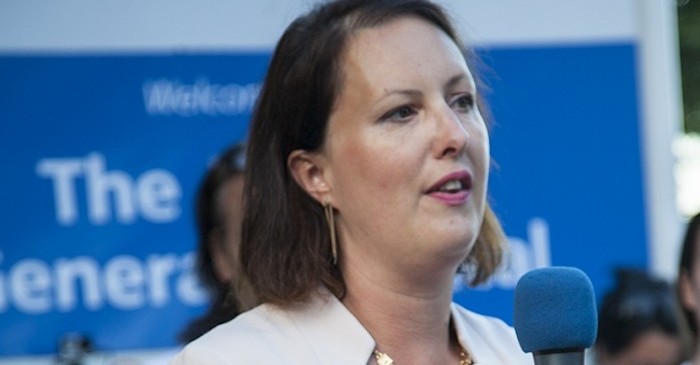Farming Minister Victoria Prentis has agreed to host a roundtable meeting with the NPA and other parts of the supply chain to discuss the ‘perfect storm’ affecting the pig sector at the moment.
The meeting will take place next Tuesday after NPA chairman Richard Lister requested a meeting in a letter to Defra Secretary George Eustice in January, in which he warned that the current issues facing the sector could ‘rapidly turn into a crisis for our members if nothing is done to improve their situation’.
The NPA has also been raising awareness with MPs and chief executive Zoe Davies and senior policy adviser Charlie Dewhirst met last week with Shadow Agriculture Minister Daniel Zeichner.
“We are delighted to have secured the roundtable meeting,” Dr Davies said. “We have been working very hard to raise awareness of all the issues facing the industry and it is really important that we will now have ministerial involvement as we look to find solutions.”
NPA is also engaging with the processors to work on the options available to help the industry and has asked AHDB is there is any potential for levy underspend to be used to support the industry.
The association is also developing a campaign to promote British pork, Dr Davies told an town hall meeting for the eastern region on Tuesday night.
A survey undertaken by producers at the online meeting highlighted the high proportion of farms that have had pigs rolled recently and subsequent issues with the build-up of pigs on farms, in line with the results from last week’s meetings.
Surveys taken across all three town hall meetings staged over the past week or so have also shown the extent to which producers are concerned about the economic situation on their farms.
The latest meeting discussed in detail, with input from AHDB, processors, marketing groups and breeding companies, as well as producers, the issues that have come together to create the perfect storm.
Pork plants continue to be affected by COVID-19 outbreaks, including the Brechin plant in Scotland, which is currently closed for a fortnight, reducing weekly throughputs and causing pigs to be rolled. While the national backlog does not appear to be growing, there is little sign of it easing.
This has been compounded by new Brexit checks and paper-based certification requirements at borders, which have caused delays to exports and in some cases resulted in shipments not reaching their destinations, as highlighted recently by the NPA.
Those involved in pork exports at the meeting explained how vastly different approaches were being adopted at different ports, making it difficult to send consignments to the EU with any certainty. This has further damaged the cull sow market, while exports in certain categories, such as live breeding pigs, have ceased altogether.
To add to the picture, policy confusion has resulted in Defra requiring all pigs for export to be tested for trichinella, at least until the European Commission can give a definitive answer on its requirements.
But equivalent checks are not being applied to imports from the EU as the UK is phasing in its checks in order to prevent disruption to food supplies – at a time when EU pork is particularly cheap due to surpluses across the EU caused by COVID-19 outbreaks and Germany’s ASF export ban.
Meanwhile, UK pig prices are falling and costs of production are rising, with many producers either already losing money or expecting to be operating on negative margins soon.
The NPA has been raising awareness of these issues in the regional, national and international media.
Personal strain
Another very important issue raised and discussed at the meeting was the personal strain those working on pigs farms are suffering as a result of the situation. Prominent producers spoke out about how a high proportion of staff had experienced ‘real anxiety issues’.
“I do think we are so conscious of looking at people for signs of COVID that we are not always seeing those people who are becoming withdrawn, nervous, anxious and are poorly in a mental state,” one producer said.




